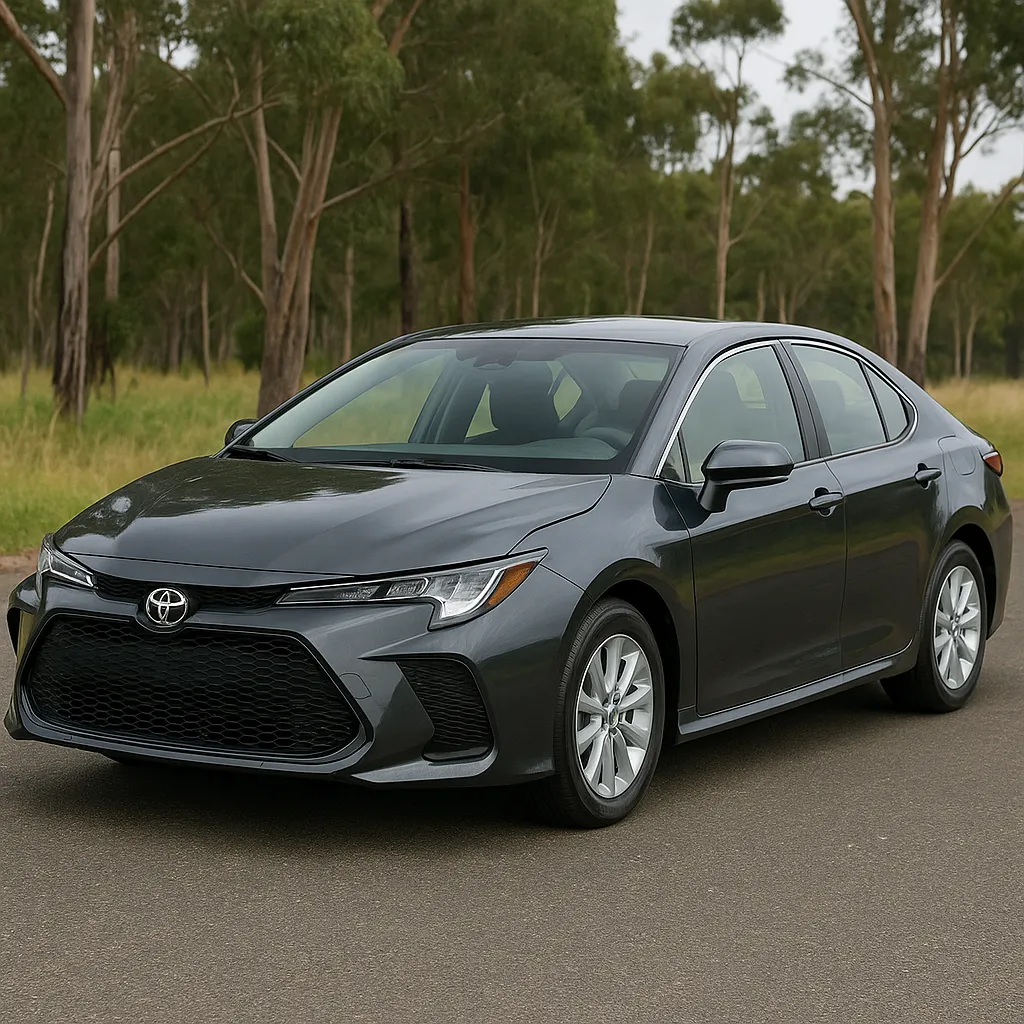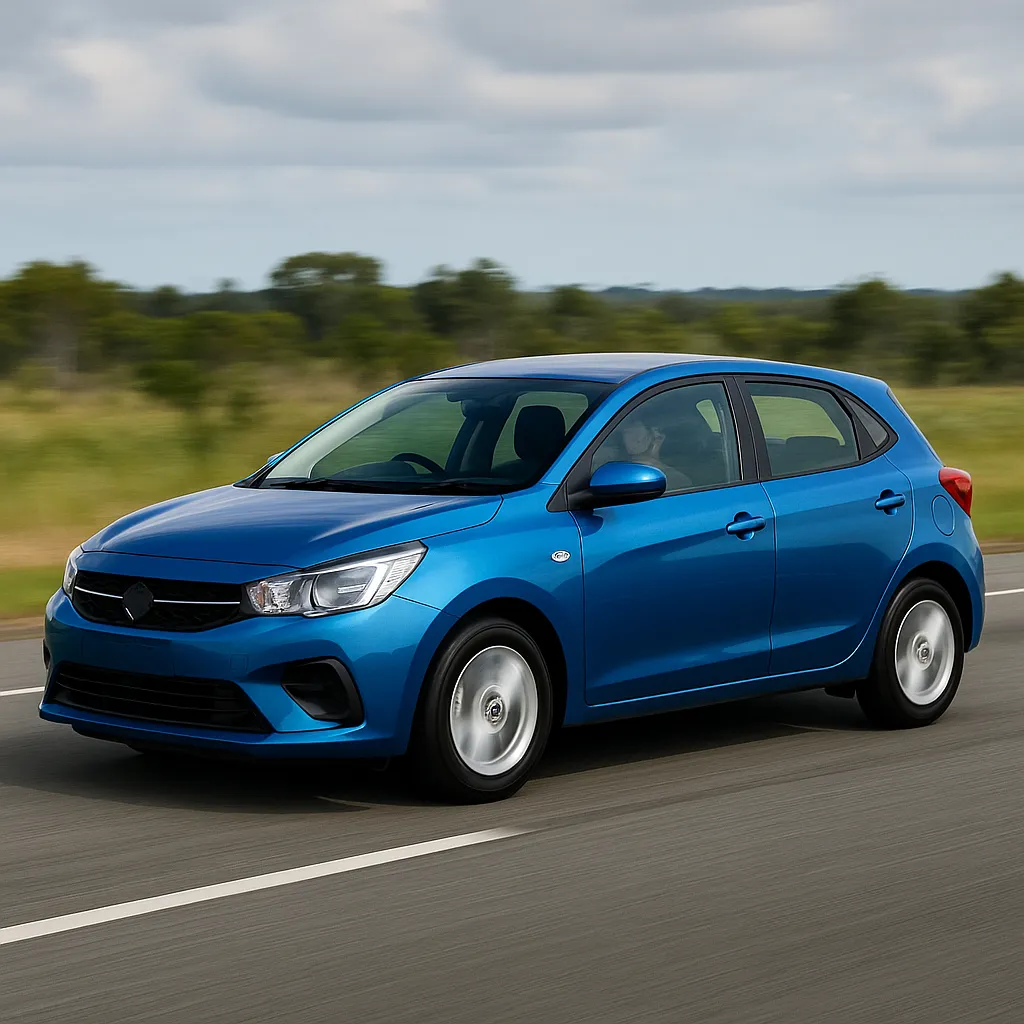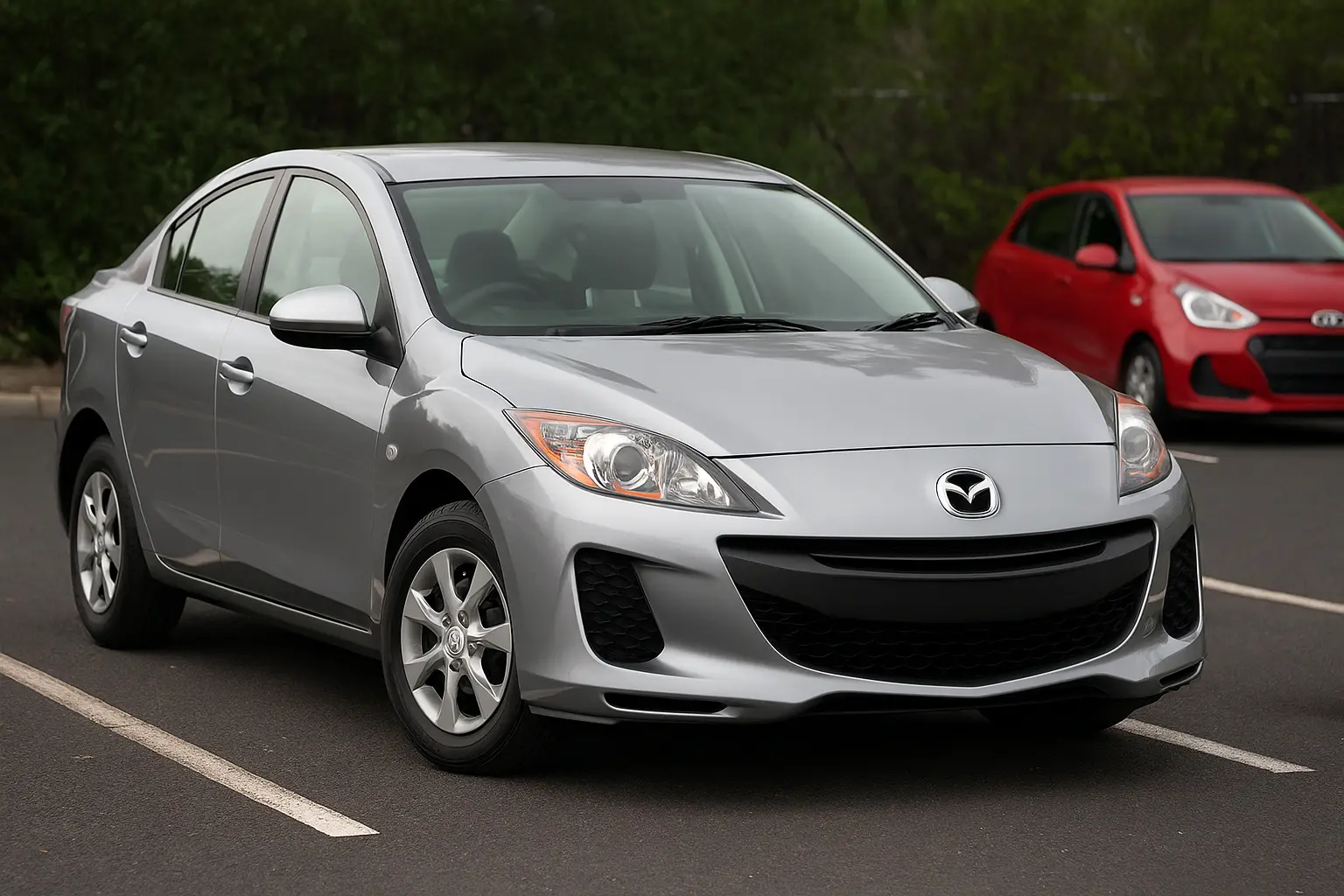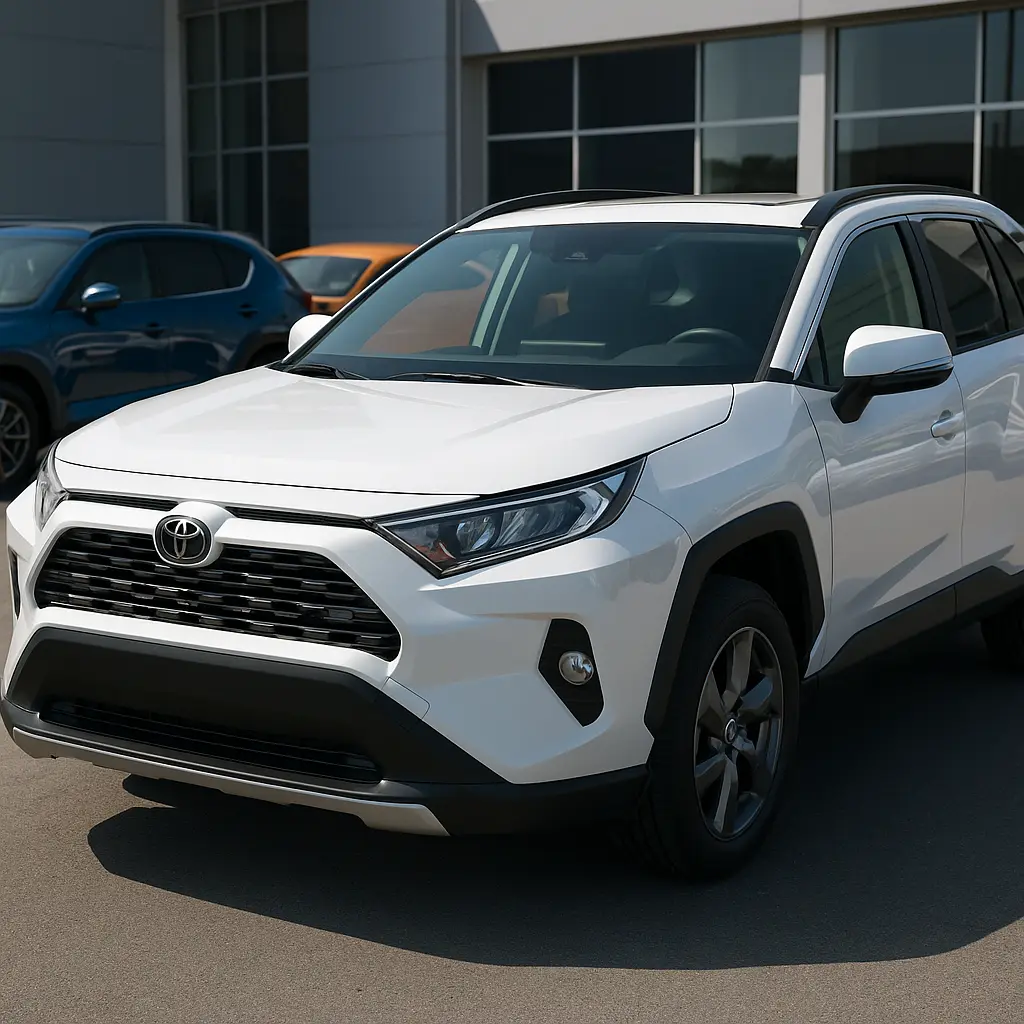Most Fuel-Efficient Petrol Cars You Can Still Buy in Australia
While hybrids and EVs dominate headlines, traditional petrol-powered cars are far from obsolete—especially when it comes to fuel efficiency, affordability, and familiarity. For many Australian buyers, especially those living in regional areas or on a budget, petrol cars still make a lot of sense.
In this guide, we explore the most fuel-efficient petrol cars you can still buy in Australia in 2025—from small hatches and budget sedans to compact SUVs. If you're after low fuel bills without going hybrid or electric, read on.

Why Choose a Fuel-Efficient Petrol Car?
Despite the rise of EVs and hybrids, there are several good reasons to consider a petrol car:
Lower upfront costs than EVs and hybrids
Greater refuelling convenience (more petrol stations than chargers)
Simple maintenance—no battery packs or complex hybrid systems
Lightweight and responsive driving experience
Plenty of variety across brands and segments
Factors That Influence Fuel Efficiency
Before jumping to the list, it's good to understand what impacts fuel usage:
Engine size & type (small displacement turbo engines are common now)
Transmission (CVTs and dual-clutch gearboxes are more efficient)
Vehicle weight (lightweight hatchbacks beat SUVs in this area)
Tyres, drag coefficient, aerodynamics
Driving habits and terrain
All vehicles listed below have been tested under Australian conditions (ADR81/02) or similar WLTP testing, so the numbers reflect real-world usability.
Top Fuel-Efficient Petrol Cars in Australia – 2025
Let’s now explore the most frugal petrol-powered vehicles currently on sale, ranked by official combined fuel consumption (L/100km), while also considering real-world economy, comfort, features, and reliability.
1. Suzuki Swift GL Plus
Fuel Economy: 4.6L/100km
Price: From $24,490 drive-away
Transmission: CVT
Why It’s Great: Lightweight, compact, reliable, and ultra-economical.
The Suzuki Swift continues to dominate the small hatch segment with its zippy character and low ownership costs. It’s ideal for city dwellers or first-car buyers.
2. Toyota Yaris Ascent Sport
Fuel Economy: 4.9L/100km
Price: From $28,000
Transmission: CVT
Safety: 5-Star ANCAP, Toyota Safety Sense
Yaris may have become more premium and slightly pricier, but it’s now among the safest and most fuel-efficient small petrol cars on the market.
3. Mazda2 G15 Pure
Fuel Economy: 5.0L/100km
Price: From $23,720
Transmission: 6-Speed Auto
One of the most refined small cars with a quality cabin and great long-term reliability. Mazda2 is still a strong petrol-only option in 2025.
4. Kia Picanto GT
Fuel Economy: 5.2L/100km
Price: From $21,290
Engine: 1.0L Turbo Petrol
Transmission: Manual
Despite its size, the turbocharged Picanto GT is fun to drive, affordable, and super efficient for city commuting.
5. Hyundai i30 Hatch (2.0L)
Fuel Economy: 6.8L/100km
Price: From $27,990
Why Choose It: More space than a Swift or Yaris, still decent economy.
The i30 is the jack-of-all-trades hatchback. While heavier than others, it’s well equipped, durable, and still quite efficient for a non-turbo 2.0L petrol.
6. Mitsubishi Mirage ES
Fuel Economy: 4.9L/100km
Price: From $18,990
Note: Discontinued in some states, but still available in others in 2025
The Mirage is one of the cheapest and most frugal petrol cars in Australia. It’s bare-bones, but it ticks the box for basic commuting.
7. Toyota Corolla Ascent Sport Sedan
Fuel Economy: 6.0L/100km
Price: From $30,000
Engine: 2.0L Dynamic Force Petrol
The Corolla sedan edges out the hatch in real-world fuel economy thanks to its aerodynamic body. Excellent reliability, safety, and value.
8. Honda City VTi-L
Fuel Economy: 5.4L/100km
Price: From $28,000
Features: Honda Sensing, big boot, comfortable rear legroom
If you're after sedan practicality and hybrid-like fuel use without the hybrid, the City is a strong choice. Often overlooked, it’s well worth considering.
9. MG MG3 Core (2025 New Gen)
Fuel Economy: 5.5L/100km (estimated)
Price: TBA, expected ~$23,000
What’s New: Updated platform, revised engine, more tech.
The all-new MG3 has grown up in 2025, offering far better fuel economy and features than the previous gen, though real-world figures are yet to be widely tested.
10. Hyundai Venue (1.6L Petrol)
Fuel Economy: 7.0L/100km
Price: From $27,500
Type: Compact SUV
While slightly higher in consumption, the Venue remains one of the most affordable petrol-powered SUVs, perfect for small families or urban drivers.
Honourable Mentions
These cars deserve a mention for their mix of frugality, value, and comfort.
- Skoda Fabia Style (1.0L TSI)
5.0L/100km, refined Euro feel, turbo efficiency
- Mazda3 G20 Pure
6.1L/100km, stylish, solid resale value
- Nissan Juke ST+
6.0L/100km, quirky styling, good tech
- Kia Cerato S (2.0L Petrol)
7.4L/100km, good space and warranty support
Petrol vs Hybrid – Is It Still Worth Buying Petrol in 2025?
Pros of Petrol:
Lower upfront cost
Simpler to maintain (no hybrid battery)
Available in more regional dealerships
Faster refuelling time
Cons:
Slightly higher fuel costs over long term
Not as green (though newer Euro 6-compliant engines are cleaner)
Resale value could be impacted as EVs grow
Still, if your focus is purchase price and simplicity, petrol remains a safe bet.
How to Maximise Fuel Efficiency in Petrol Cars
Even with a fuel-efficient car, poor habits can ruin your mileage.
Tips to save more fuel:
Keep tyres inflated correctly
Avoid hard acceleration and late braking
Don’t overload the vehicle
Limit air-con use when possible
Stick to service intervals
Use cruise control on highways
Choose the right petrol (standard ULP unless specified)
Petrol Cars with the Best Warranty & Reliability in 2025
Brands with top warranties:
Kia – 7 years/unlimited km
Hyundai – 5 years/unlimited km
Mitsubishi – 10-year conditional warranty
MG – 7 years
Toyota – 5 years, extendable with servicing
These warranties mean more peace of mind with long-term fuel savings.
Final Thoughts: Should You Buy a Petrol Car in 2025?
Yes—if you:
Want lower upfront costs
Need a reliable, no-fuss daily commuter
Are looking for wide serviceability across Australia
Value fuel savings without paying hybrid/EV premiums
The market still offers a range of petrol-powered vehicles that sip rather than guzzle fuel. Whether it’s the iconic Yaris, fun Picanto GT, or humble Mirage, there’s something here for every budget-conscious Aussie buyer.
Need more personalised advice or comparisons?
carsoop.com.au is your go-to destination for deep-dive reviews, comparisons, and buying tips that suit real Australian driving conditions.
Stay fuel smart and drive happy!
Leave a comment
Your email address will not be published. Required fields are marked *




